![]()
![]()
Back to Japan Intro.
![]()
Back to Japan Intro
![]()
Back to Japan Intro
![]()
Back to Japan Intro
![]()
Back to Japan Intro
![]()
![]()
Personal Relationships / Cultural
Differences
Food:
- The Japanese eat raw fish, but would not think
of eating raw vegetables (raw carrots are "for horses").
Eels are a delicacy.
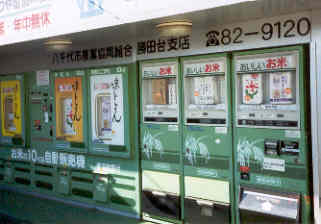
- You can get just about anything in a vending machine, including larger sizes of drinks for the same price as smaller sizes.
- The Japanese will shop for small amounts of food
every day, since so much is fresh food.
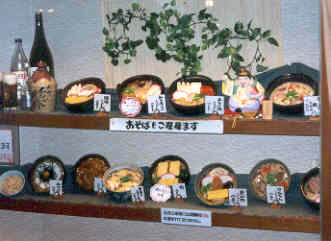
- A hot damp towel (cold in the summer) - o-shibori - will be given to you after you sit down at a restaurant. Wipe your hands with it, and put it on the tray it came on.
- Keep tissues with you, as napkins are not served.
Language:
English is everywhere - it's in advertisements, on
T-shirts, on signs, and in the music played in stores. The
Japanese think it's cool - but a lot of it is poorly
translated and most do not speak English well enough to
understand it. 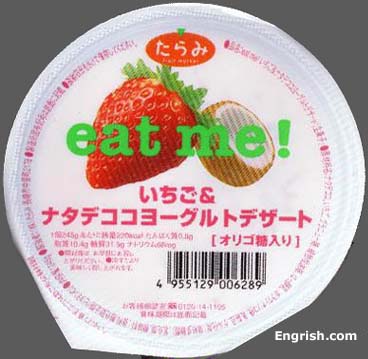
The Japanese tend not to speak to you in English even if they know some, because they are embarrassed about making mistakes. When people get some alcohol into their systems, they're a lot more willing to talk to people.
The sign says, "Yo are supposed to put off your shoes."
See below for more examples. 
Cartoons - old and new - are everywhere to advertise businesses - many are from America - Jackie's bank used TinTin to promote itself. Betty Boop is common.
Cultural Contradictions:
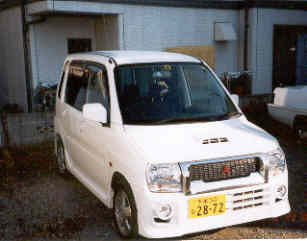
Everyone keeps things so neat in the small yards and homes they have. Cars are washed, ropes are set on the ground to delineate when each car may park. Taxi drivers have feather dusters and dust their cars when they are not in use. There are few if any garbage cans even in Tokyo --- people are not expected to litter. Every empty space seems to have a garden or something growing in it. Many people also wear masks when they have a cold as a courtesy to others to avoid spreading germs. You are not expected to blow your nose in public, even if it is running.
However, men can throw up or spit on the street and that
seems to be acceptable (there is a fair amount of public
drunkenness). Men urinate on the street if drunk. 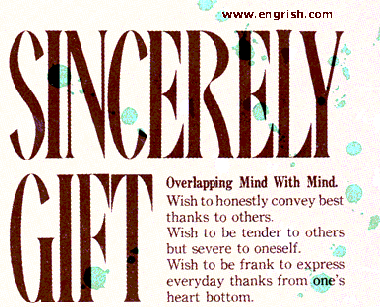
Gift giving is a fine art here; small gifts are given for
every occasion, and reciprocation is vitally important.
Presentation of the gift (as with the food) is very
important; wrapping is carefully taken off gifts and folded.
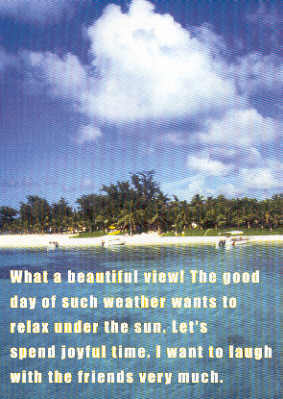
However, one must be very careful to take note of who gives what, so reciprocation is possible. No one makes a big deal about gifts, but noting who gave what is important.
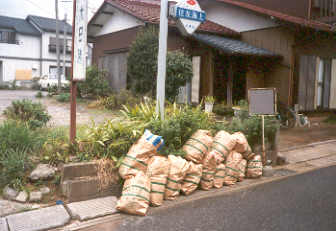
Even though the country is very concerned about garbage and recycling, gifts and most other products are over-wrapped. Cheese comes in individually wrapped slices, which are wrapped in another package.
Kids are obviously loved here, especially since families are small.
However, there does not seem to be anything like kiddie
seats on bikes and cars, and everywhere you see children
riding in bike carriages or on the seats of cars without
being strapped in. 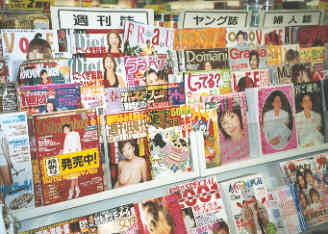
In addition, there doesn't seem to be any concern about separating pornography (or what North Americans would consider pornographic) from the children.
Everyone here - adults as well as children - reads monga, Japanese cartoon stories, in large soft cover books you can buy anywhere.
 Many of them have random sex / rape in the stories, and
there doesn't seem to be any way to tell them apart from the
"clean" stuff. Obviously pornographic magazines (including a
"how to" manual as to how to do just about anything) was in
a newsstand right next to a kiddies carnival.
Many of them have random sex / rape in the stories, and
there doesn't seem to be any way to tell them apart from the
"clean" stuff. Obviously pornographic magazines (including a
"how to" manual as to how to do just about anything) was in
a newsstand right next to a kiddies carnival.
Japan has the most advanced cell phones and video - TV equipment you'll see anywhere. Kids and adults are all plugged into cell phones, which can show movies, take pictures, download from the Net as well as allow you to talk to people.
However, virtually no one will take credit cards - good luck trying to use a debit card - everyone simply carries a lot of cash for everything.
Japanese people seem to tolerate being in small spaces better than most people - on our way here, in the airplane, virtually no one spoke (including the children), people only got up to use the bathroom, and after almost 12 hours flying, no one moved when the plane waited 15 minutes on the ground for clearance to disembark after stopping
However, people are not seated together on rides at amusement parks if they don't know each other, even when people are waiting more than three hours for a ride, as in Disney Sea in Tokyo.
Appearance of Harmony:
Surface harmony must be maintained - even if it means not telling the truth to cover up awkward situations ("little white lies"). No one says "no". If someone is drunk or throws up on the subway, no one moves or acknowledges the person's presence. Guests accept whatever the host has decided to serve.
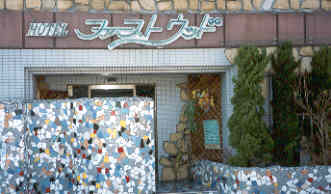
However, it is considered rude to express your emotions in public. A "poker face" is very often used to cover up negative emotions as well as protect your privacy. A smile often is used as a way of concealing embarrassment. In addition, direct eye contact is often considered rude; looking away / down is a show of respect (although children, who hadn't quite got this yet, often would stare at the gai jin).
Definite No - nos:
- No walking on Tatami mats with shoes. Taken 'em off at the doorway.
- No sticking chopsticks upright in your food - especially in your rice bowel. That is an offer of rice to the dead.
- No grabbing chopsticks with the palm of your hand - that is how a sword is handled.
- Do not pour soy sauce on your rice. You offend the chef. Other dishes are meant to flavour the rice as you eat.
- Do not play with your food and try to figure out what's in a particular piece. The arrangement of the food is very important - you insult your host by being childish about the food served to you.
- Never blow your nose at the table.
Gift Giving:
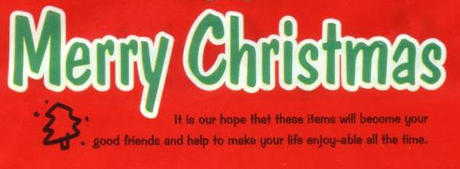
This is central to Japanese life. The giving and receiving of gifts are traditional customs. The value of the gift itself is not as important as its presentation and the thoughtfulness behind it. Tipping is an insult, however.(The Merry Christmas sign says:"It is our hope that these items will become your friends and help make your life enjoy-able all the time."
You should expect to give gifts upon any visit to a Japanese home and to new friends you might make.
There are two times during the year that are actual gift-giving seasons. The mid-summer gift giving is called O-chugen, and the end-of-year season, which is more important, is called O-seibo. Once a gift is given, you will be given a gift in return as a "thank you" gift called O-kaeshi. Traditionally, that gift has about half the value of the givers gift, so it is important not to be too lavish with a gift.
Gifts are given with two hands, and received the same way, and with a bow. Food is a very common gift, as most Japanese homes have no room for knick-knacks.
Do NOT Give:
- anything that represents the severing of a relationship, such as scissors or letter openers.
- items in sets of four. A set is considered to be five. Also, four symbolizes death.
- items in sets of nine. Nine symbolizes suffering. flowers - they are used at times of illness, death, or courting only.
©A. Appel, 2001